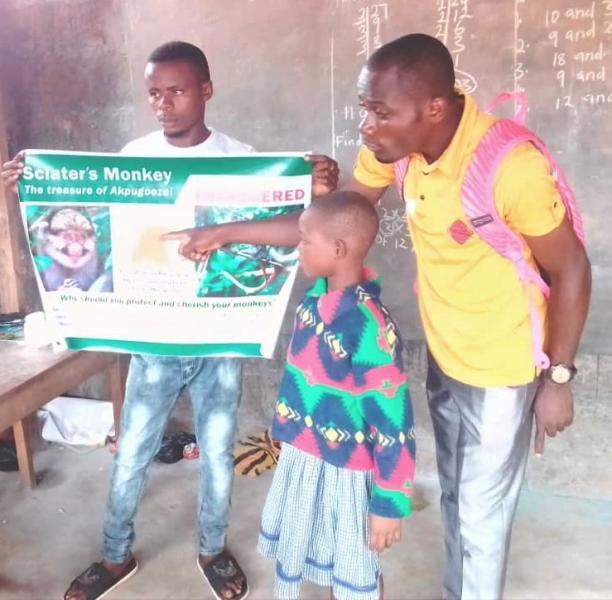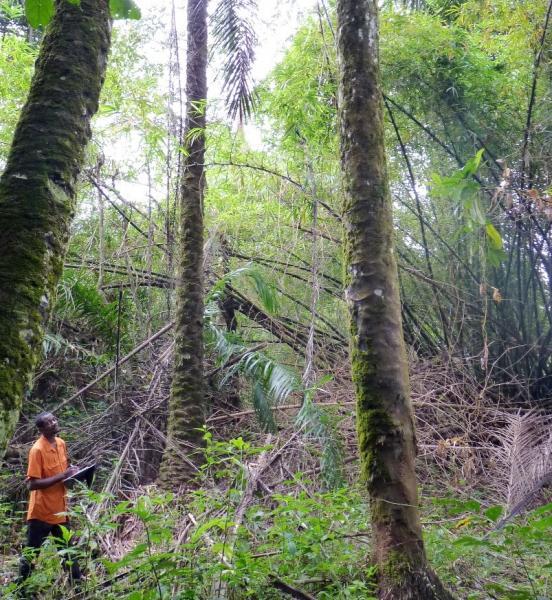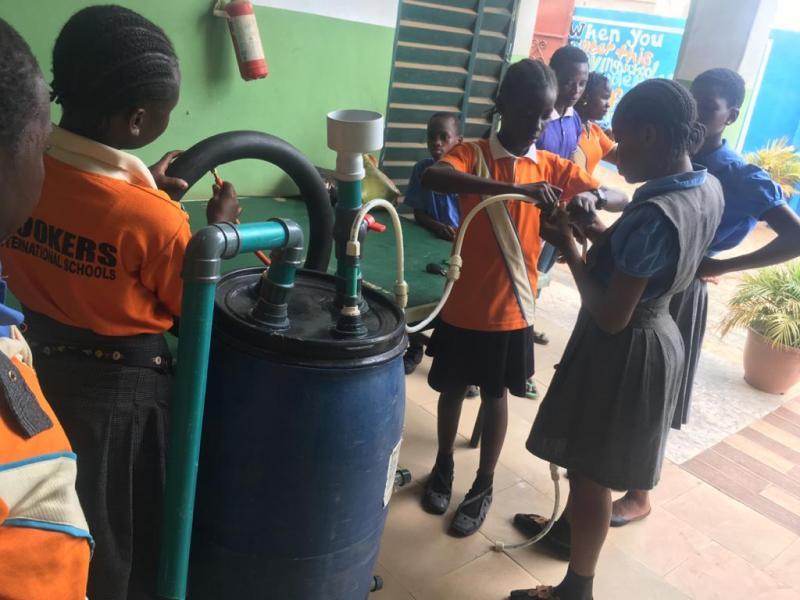Akpugoeze, Enugu State, Nigeria
2020 EE 30 Under 30 Changemaker Grant Project
Akpugoeze Community Awareness and Waste Clean-Up Campaign
This project will establish a community-wide campaign and clean-up initiative using environmental education to raise awareness and harness citizen engagement in waste management in the Akpugoeze community complex of southeastern Nigeria. A lack of waste management services in the community poses a health risk to both humans and the endangered Sclater’s monkey, which is endemic to southeastern Nigeria. By harnessing community engagement, the project aims to alleviate pollution, increase community pride, and form the foundation for effective waste management in the community.
**********
EE 30 Under 30 Biography
Emmanuel builds awareness in Nigeria to improve environmental health and human well-being and to protect the endangered Sclater's monkey that resides within his community.
Tell us about yourself!
I grew up and still reside in the rural community of Akpugoeze in Enugu State, Nigeria. In my part of the world, people suffer from serious health and economic challenges, and the environment around us is becoming more and more inhospitable for people and wildlife. This has long triggered great concern in my heart. Given that environmental health is not prioritized where I am from, I was never sure how to address this troubling issue. It was after I obtained a bachelor’s degree in Educational Management and Policy in 2018 that I got the opportunity to do so.
In late 2018, I was fortunate to join a forest monitoring project, organized by a foreign scientist working on conservation issues in Akpugoeze, as a forest monitor and supervisor. It was through this program that I saw first-hand the devastation of Akpugoeze’s remaining forests and the impacts of irresponsible land use and waste dumping. This was a life-changing experience. I became dedicated to using education to enlighten others on the need for conservation and sustainable development.

![]()
In 2019, I became the supervisor of an intensive community-based environmental educational project, targeting hundreds of children and adults in Akpugoeze. The education team went to homes, town halls, schools, and churches. We focused on many environmental topics, including the conservation of our community’s resident primate, Sclater’s monkey, which is an endangered primate found only in Nigeria. I am now preparing to pursue a Master’s degree in sustainable development.
What inspired you to become a champion for environmental education?
Seeing the harmful impacts happening all around me, my major source of inspiration comes from a motivation to help my environment and my people. Deforestation is one of the major problems in my community. Both human and animal well-being are negatively affected by the loss of trees that provide environmental, health, and economic benefits for us. I have also witnessed a major decline in natural water sources, which hundreds of people in my community depend on as their primary source of drinking water. These precious resources are increasingly becoming polluted as people cut huge trees that provide shade and filter the water underground. Many trees on hillsides above our natural springs and streams are being cut, either for wood or farmland, leading to erosion and sometimes introducing harmful substances into the water.
I am also motivated by the fact that my community is home to the largest sacred population of an endangered and endemic primate, Sclater’s monkey. Preservation of this species and its habitat is critical to the well-being of my community’s unique culture and environment.
Finally, my people constantly clamor for “development,” but do not understand sustainability. To build a single house, one may destroy many trees. It is through environmental education that one can help reverse these negative trends, and thus, I am inspired to do just that.
What advice would you give to the next generation of leaders that are looking to bring about positive change in their communities through EE?
I have many things to suggest to the next generation, but let me narrow it down to these key points:
- Be determined to leave your environment, or your community, better than how you met it.
- You cannot do all the work alone. Learn to collaborate with others, such as schools, non-profit organizations, community-based associations, and local people.
- One of the greatest challenges you may face in environmental education, particularly in developing countries, is adapting to cultures and people. For example, influential leaders, such as traditional leaders, may oppose your ideas for selfish or cultural reasons, or simply due to ignorance. Try to understand local cultures, adapt to them, and be as diplomatic as possible in relating with people. You will be more effective if you align your programs to the cultures of those you wish to educate, rather than to expect them to change for you.
- For environmental educators in countries where sustainability is not yet a priority, do not be discouraged or let others weigh you down. Believe in yourself, have faith, and keep pushing forward. Never be afraid nor ashamed to start from somewhere, no matter how small.

![]()
What keeps you motivated, inspired, or hopeful for the future?
What keeps me motivated is partly due to how delighted I am at how my life is turning out. The environmental education work I am doing and the knowledge I am gaining about sustainability continue to motivate and excite me – I am hopeful for a new future. I look forward to helping promote increasingly positive changes in the environment and witness changing attitudes of those around me. For example, in future, I expect to see people in my community acting in environmentally conscious ways and engaging in sustainable behaviors, such as planting trees, not cutting trees unsustainably, and properly disposing of waste.
I strongly believe that one day my community will be much different than it is today, and that it will serve as a role model for other African communities. Therefore, I am thrilled to be one of those individuals leading efforts in this direction. One day I will look back at the challenges we overcame, and then look forward to picture more and more young ones following in our footsteps and taking up positive actions. In addition to myself and those immediately around me, I am also inspired by seeing what others around the world are passionately doing to improve the state of our environment.
Who do you look up to as inspiration for your work?
My most outstanding role model for my work has been my director and mentor, Prof. Lynne Baker. She has influenced me and many others in my community in no small measure. She works tirelessly, completely voluntarily, to help my community. Her zeal, passion, and active efforts toward sustainable development, conservation, and environmental education in Nigeria will remain a great inspiration to me. Furthermore, she never coddled me and instead challenged me and gave me a lot of responsibility. It has been a great learning experience. Importantly, she believes in me and gives me the chance to prove myself.
SIGN UP FOR 30 UNDER 30 UPDATES




